Artificial Intelligence (AI) Inventions and Patents in India
As new technologies emerge, they challenge traditional legal principles and concepts, which often lag behind technological progress. Though Artificial Intelligence (AI) as a term and a field has been in existence since the 1950s, it did not pose serious legal challenges as its implementability and applicability was limited. Today however, developments in computation, communication, information, data and other technologies have significantly enhanced the implementability and utility of AI for different purposes in different fields. This has set off debates with respect to several well settled legal principles including those governing ownership, protection and enforcement of intellectual property (IP) relating to AI inventions and creations.
When they finally emerge, the answers to some of the questions might affect the ability of the IP system to promote progress of science, technology, and creativity. Though Courts in some countries have arrived at determinations on AI inventorship and ownership, several questions are still open, and are the subject of legislative activity and/or policy making. Reports of WIPO and different patent offices such as the USPTO indicate that AI techniques have diverse applications across many fields, and are difficult, if not impossible, to track. The ubiquity of AI applications and related consequences, and the rapid pace at which Artificial Intelligence research seems to be progressing makes it very challenging to arrive at a specific policy framework and approach, and the resultant openness/ambiguity is reflected in the response of patent offices to applications involving AI. With that in mind, this article gives a perspective of some AI patent trends and patentability issues with specific focus on India.
AI Inventions and Patents
The 2019 report of WIPO (World Intellectual Property Organisation) on AI technology trends based on PCT filings indicates that inventions involving machine learning, specifically deep learning and neural networks techniques, form forty (40) percent of AI patent applications. It also discloses that close to fifty (50) percent of functional application patent filings relate to computer vision, which includes image recognition. The other dominant functional applications are natural language processing and speech processing, and inventions relating to robotics and control methods are reportedly growing. The dominant AI applied fields as per the report are transportation including avionics, autonomous vehicles and aerospace, telecommunications including internet, broadcasting, and communications, and life sciences including biosciences, neurosciences and medical technologies.
A 2020 report of the USPTO (US Patent and Trademark Office) entitled ‘Inventing AI’ traces the diffusion of AI into different technologies. The report includes patent data uncovered using a machine learning algorithm. The report indicates that AI related patent filings increased by 100 percent between 2002 and 2018 growing from 30, 000 to 60, 000 applications per year. As per the report, their share of total patent applications also grew from 9 to 16 percent, and their share in different technology sub-fields grew from 9 percent to 42 percent between 1976 and 2018, indicating a significant increase in diffusion of AI into different domains. The fastest growing among AI inventions based on US patent applications relate to knowledge processing and planning/control, followed by computer vision, machine learning and AI hardware; and evolutionary control, speech and natural language processing.
In a 2020 report on growth of technologies driving the 4th industrial revolution driven by data, the EPO (European Patent Office points out that patent applications pertaining to such technologies grew annually by 20 percent between 2010 and 2018. Inventions forming part of the applications include those relating to artificial intelligence, communications, smart devices, and connected objects, among others. During the period, the report states that core technologies grew faster than enabling technologies. The report also points out that among hardware, software and connectivity, inventions pertaining to connectivity were higher. Furthermore, as per the report, the United States leads other countries in patent filings relating to inventions driving the 4th industrial revolution.
The WIPO report on AI technology trends mentions that India’s rank is higher in scientific publications when compared to patent applications. From 2012 to 2015, the report indicates that AI patent applications with first Indian filing grew by 33 percent during the period. Publications from India are ranked high in fuzzy logic and machine learning, and it ranks at No. 5 in distributed AI applications. The report points out that Indian research in computer vision, natural language processing, distributed AI, planning/control, speech processing, and predictive analytics is quite significant though that is not reflected in PCT applications. A recent search performed by BananaIP’s patent attorneys using keywords of WIPO indicates that artificial intelligence related patent applications at the Indian Patent Office grew significantly between 2016 and 2020.
AI and Patent Offices
Patent Offices across the world hold huge repositories of data, and as the number of patent filings increase, this data is growing at a significant pace. The patent document classification system has also progressed appreciably over the years, and hundreds of sub-classes have been created to classify patents and applications. The huge amount of prior art documents, and numerous patent classes makes it quite challenging for patent offices to receive, search, classify, examine, and process patent applications. The language diversity of patent documents and multiplicity of systems followed across the world further complicates their task.
Several patent offices have started developing AI technologies to supplement or complement their work, improve examination quality, enhance applicant experience, and make the patent process robust. Some of the AI tools have already been implemented, and several others are in process. The WIPO, which administers the PCT, has developed AI technologies for searching, translation and process administration. USPTO, EPO, JPO (Japanese Patent Office), KIPO (Korean IP Office, and other patent offices have developed, or are in the process of developing tools for preliminary patent searching, patent classification, prior art extraction, drawing review, file allotment, and patent examination. These tools have proven their utility in enhancing efficiency, reducing the time spent, and improving examination quality.
Though different patent offices have a clearly defined approach to integrating AI systems into their processes, the Indian Patent Office does not seem to be taking proactive steps towards integrating AI. The discussion paper published by Niti Aayog on the strategy for artificial intelligence refers to narrow patent protection, but does not talk about enhancing the patent office’s capabilities. A 2018 news item speaks about the Indian Patent Office’s intent to adopt and integrate AI, but no discernible progress seems to have been made towards that end.
The Indian Patent Office has progressed significantly in transparency and data availability over the last decade, but the patent process in India continues to suffer from several weaknesses and drawbacks. The processes followed by patent examiners are not consistent across patent offices, the incidence of use of subjective decision making is very high, objection relevance is low, and examination quality is quite unpredictable, among others. Many of these issues can be resolved fully or partially and the quality of patent examination and process efficiency/consistency may be improved through AI technology integration. Also, that might enable the patent office to show case the much talked about AI prowess of India to the world.
AI Inventions and Patentability
Artificial Intelligence is considered by some as the new electricity with tremendous potential, but it is not at a point of maturity to realize the promise it holds. Like other evolving fields, it suffers from scientific and technological ambiguity, uncertainty and unpredictability, which affects patentability of AI inventions. Unresolved legal issues and unpredictability of the art makes patentability of AI inventions ambiguous and uncertain. The ambiguity is higher with respect to AI generated inventions when compared with AI assisted inventions. Though some Courts and patent offices have come to the conclusion that Artificial Intelligence cannot be an inventor, the issue continues to subsist. The elements that normally constitute AI inventions such as data sets, learning models, algorithms, techniques, and networks give rise to subject matter issues in some jurisdictions. The unpredictability and immaturity of the field also poses questions pertaining to novelty, inventive step and disclosure standards. For the aforestated and other reasons, patentability outcomes are not reasonably foreseeable, and there is a need for a well-defined and clear policy/guideline.
Unlike European, Japanese, Chinese, Singaporean, US and UK patent offices, the Indian Patent Office has not issued any guidelines for examining AI inventions, and examiners are often confused about the approach they are required to adopt. With respect to AI techniques and functional applications, they rely heavily on subject matter exclusions pertaining to per se computer programs, mathematical methods/algorithms, and business methods, but are not very clear about applying those exceptions to AI inventions. The general treatment given to computer related inventions is also seen with respect to AI related inventions in India, and computational methods, algorithms and general level applications are routinely objected. there is inconsistency with respect to standards for inventive step and specification determination, and as it stands today, it is relatively difficult to predict patentability of AI inventions in India with reasonable certainty.
As it stands today, aggressive AI patent applicants rely on multiple patent applications covering the technique, functional application, and specific application of the invention in a given context. Training Data sets are not part of most disclosures, and grants/rejections are uncertainly distributed. In some instances, strategic drafting and prosecution to avoid subject matter exclusions have resulted in patent grants. Patent applications pertaining to AI and machine learning based virtual assistance, image processing, medical diagnosis, biological modelling, vehicle control, and several others have received grants despite objections based on all patentability requirements.
Closing Thoughts
In the context of India’s strengths in software, Indian companies and inventors are well placed to take advantage of the AI revolution through patent acquisition and related exclusivity. However, for that to happen, some important pieces have to be strategically put together. A clear and well-defined patent policy, legislative changes to address inventorship and patentability issues, clear patent examination guidelines, consistency in patent review, and appropriate data set and database protection will go a long way in boosting India’s AI innovation progress. Added to that, strategic use of open data, open source and open innovation models will enable competitive inventive activity. Until that is achieved, AI patent applicants will have to plan their patent filings and related business strategy around the prevailing ambiguity and uncertainty.
* BananaIP Counsels is one of the few firms in India to have an AI Patent Department constituted by experienced and specialized patent attorneys. You may learn more about BananaIP’s AI Patent Practice at this link: https://www.bananaip.com/areas-of-practice/ai-robotics-computer-vision-nlp-autonomous-vehicles/
References
- The Story of Artificial Intelligence and Patents by WIPO, available at: https://www.wipo.int/tech_trends/en/artificial_intelligence/story.html, visited on 15th July, 2021.
- WIPO Technology Trends – Artificial Intelligence, available at: https://www.wipo.int/tech_trends/en/artificial_intelligence/#:~:text=WIPO%20Technology%20Trends%20%E2%80%93%20Artificial%20Intelligence&text=This%20first%20report%20in%20our,latest%20trends%20in%20the%20field., visited on 16th July, 2021.
- Artificial Intelligence Patent Dataset, available at: https://www.uspto.gov/ip-policy/economic-research/research-datasets/artificial-intelligence-patent-dataset, visited on 16th July, 2021.
- Inventing AI, Tracing the Diffusion of Artificial Intelligence, available at: https://www.uspto.gov/sites/default/files/documents/OCE-DH-AI.pdf, visited on 16th July, 2021.
- Patents and the Fourth Industrial Revolution: The global technology trends enabling the data-driven economy, available at: http://documents.epo.org/projects/babylon/eponet.nsf/0/06E4D8F7A2D6C2E1C125863900517B88/$File/patents_and_the_fourth_industrial_revolution_study_2020_en.pdf, visited on 16th July, 2021.
- WIPO Launches State-of-the-Art Artificial Intelligence-Based Image Search Tool for Brands, available at: https://www.wipo.int/pressroom/en/articles/2019/article_0005.html, visited on 17 July, 2021.
- Artificial Intelligence and USPTO, available at: https://www.uspto.gov/initiatives/artificial-intelligence, visited on 17th July, 2021.
- Artificial Intelligence at EPO, available at: https://www.epo.org/news-events/in-focus/ict/artificial-intelligence.html, visited on 17 July, 2021.
- JPO’s Activities For Making Use of AI, available at: https://www.wipo.int/meetings/en/doc_details.jsp?doc_id=462692, visited on 17 July, 2021.
- Index of AI initiatives in IP offices, available at: https://www.wipo.int/about-ip/en/artificial_intelligence/search.jsp, visited on 17 July, 2021.
- Discussion Paper, National Strategy for Artificial Intelligence, available at: https://niti.gov.in/writereaddata/files/document_publication/NationalStrategy-for-AI-Discussion-Paper.pdf, visited on 17th July, 2021.
- Artificial intelligence: the new electricity, available at: https://www.wipo.int/wipo_magazine/en/2019/03/article_0001.html, visited on 18th July, 2021.
- Revised Issues Paper on Intellectual Property and AI, available at: https://www.wipo.int/edocs/mdocs/mdocs/en/wipo_ip_ai_2_ge_20/wipo_ip_ai_2_ge_20_1_rev.pdf, visited on 18th July, 2021.
- Artificial Intelligence and Intellectual Property Strategy Clearing House, available at: https://www.wipo.int/about-ip/en/artificial_intelligence/strategy-search.jsp?territory_id=&policy_id=, visited on 18th July, 2021.
- The Artificial Inventor Project, available at: https://artificialinventor.com/, visited on 18th July, 2021.






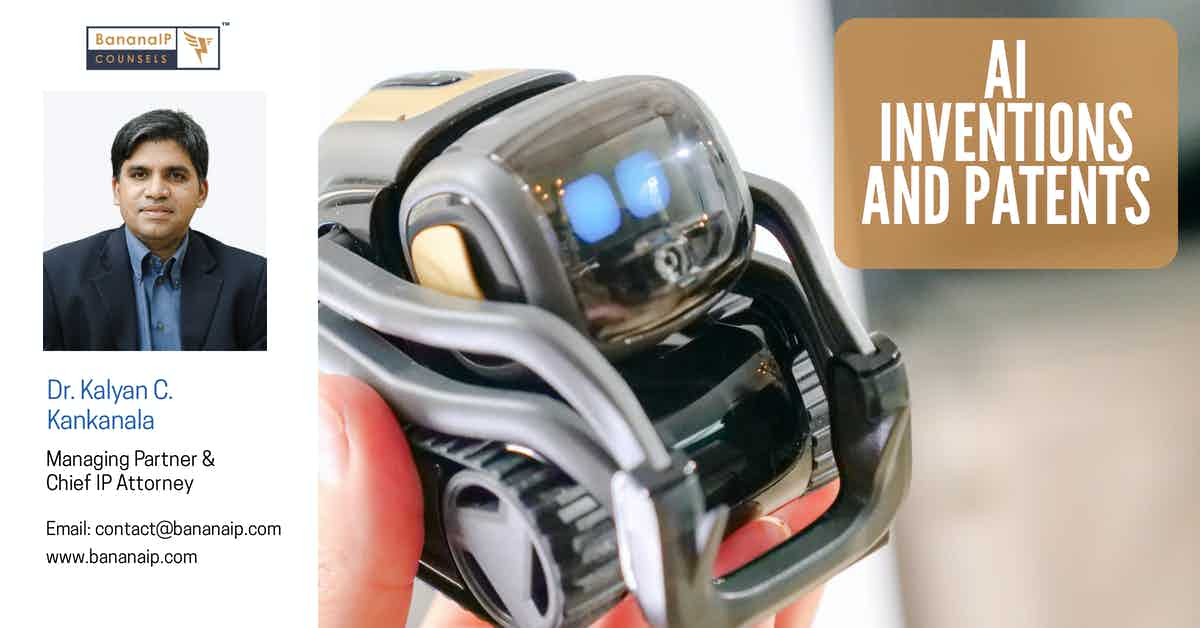
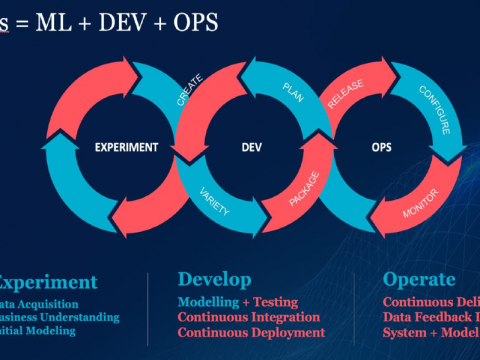
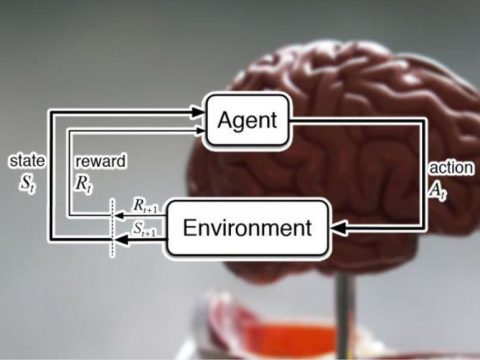
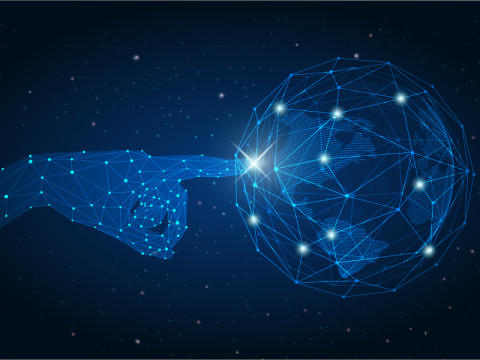

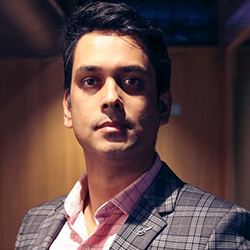
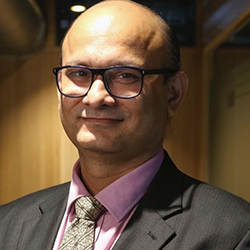 Madhav Bissa
Madhav Bissa Supriya Samuel
Supriya Samuel
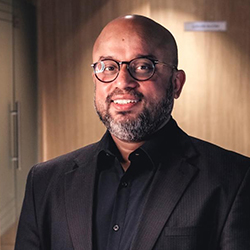
 Raj Shekhar
Raj Shekhar Tarun Kumar
Tarun Kumar